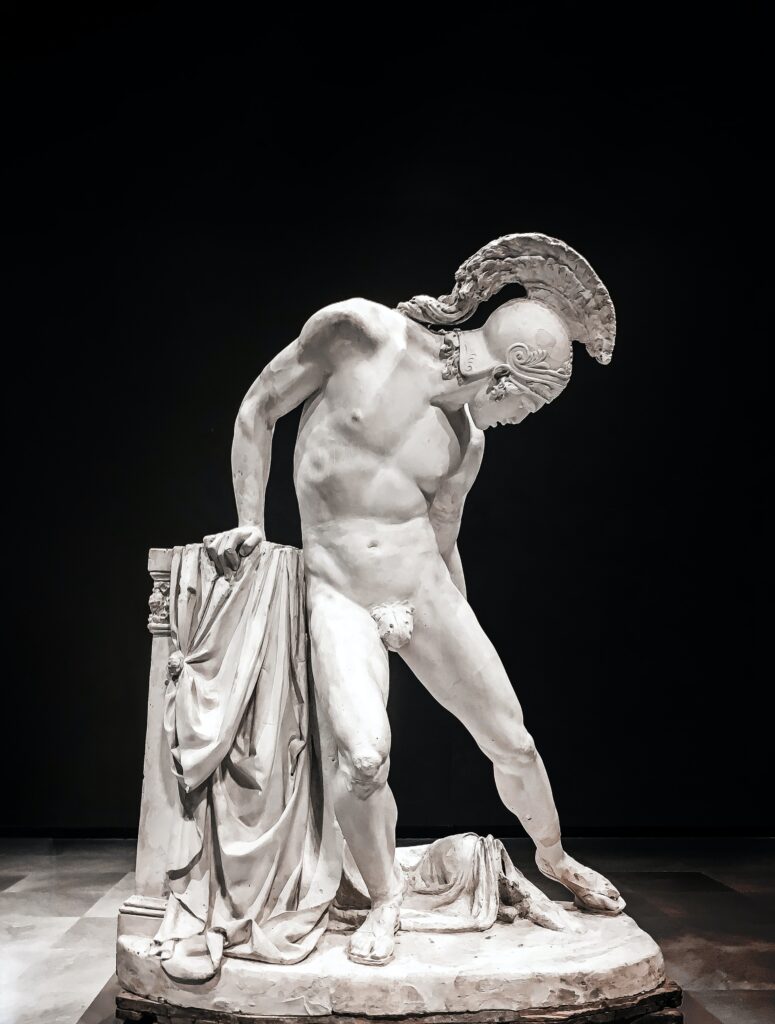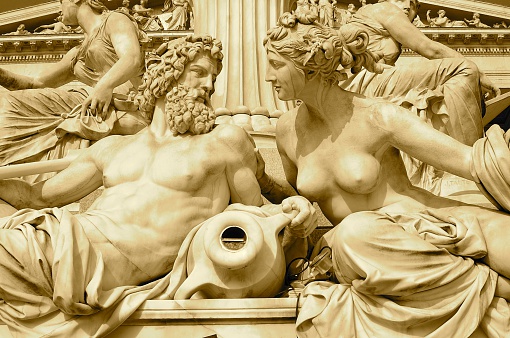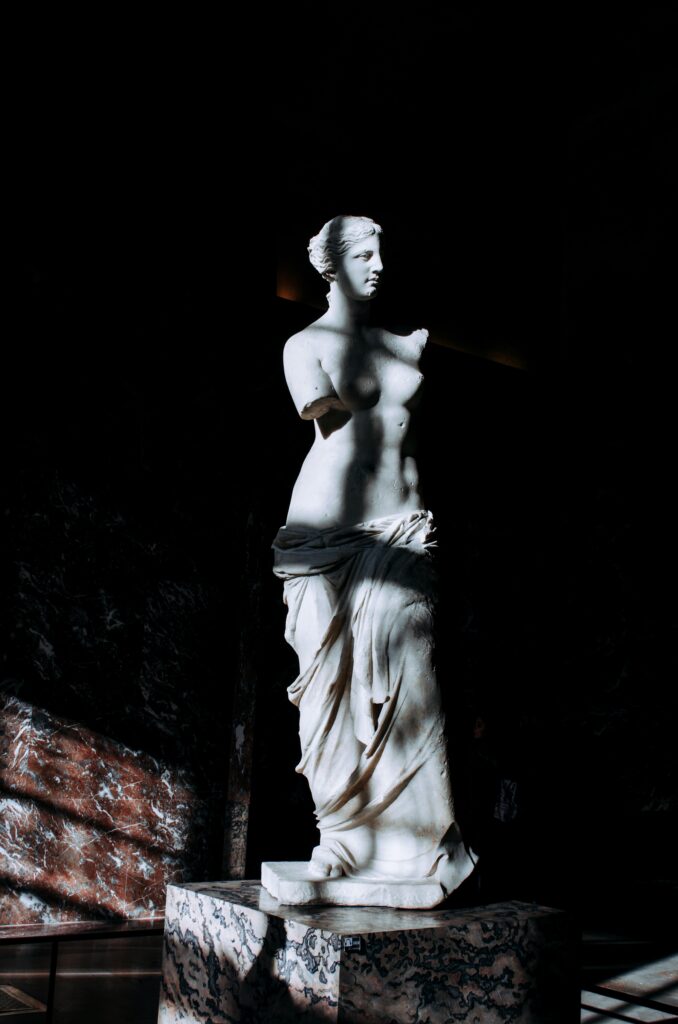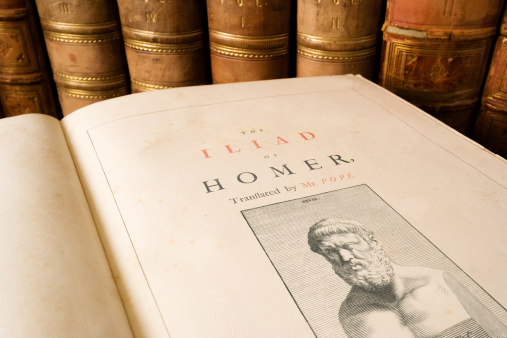In Greek mythology there are numerous deities who are larger than life. Often bearing witness to such events, especially in the case of when a God or Goddess is expressing their wrath, can lead people to be quite horrified and afraid.
However, this begs the question. Of the deities from the Greek religion, who is the scariest among them?
Out Of The Olympians
The most iconic gods of Greek mythology were the Olympian Gods, they reigned from Mount Olympus and essentially governed the cosmos themselves with Zeus at their head as King of the Gods. Being the most well known, they create a good starting place for this question… So who are the potential candidates?

To start, let’s look at Ares: Ares is the god of war in Greek mythology, there are multiple deities related to war but he is one of the most primary ones. Ares was greatly disliked by the general Greek population due to his association with the Thracians, a neighboring people who the Greeks had wars with.
Ares is associated with bloodlust, savagery, brutality, physicality, conquest, and other qualities of war that common people may view quite negatively. Given the scale that a war can reach and the devastation that war can bring to a people, this makes Ares very frightening as a deity.
However, despite all of the fighting and chaos associated with Ares, he is not really seen in such a scary sense by the mythology or worship. In fact, rather than be scared of him it seems more like the ancient Greeks just sort of loathed having him around–places named for Ares were usually dangerous places people would not travel to–but Ares is of course still respected with the rest of the Olympians as is required and non-Greeks who held Hellenized faiths often had much better impressions of him such as the Romans with Mars.
Next we will look at Hera: Hera is the goddess of womanhood, marriages, families, and childbirth. Hera serves as a protector of married women and blesses all of their unions. In fact, Hera is even the mother of Ares whom we already discussed.

With everything that I have said so far, Hera does not sound like she would be that scary of a deity. However, looking at the mythology paints a completely different perspective of her than what her titles may allure to.
Hera is often at odds with Zeus, her own husband, especially when she discovers he has been having other lovers and most especially when his interactions with those other lovers produces any illegitimate children. Hera has tried to punish and eliminate any illegitimate children of Zeus including Heracles and Dionysus, though these plots do not always work out for her such as when Hermes saved the young Dionysus from her.
Hera also punishes Zeus’s other lovers such as when she tricked Semele, the mother of Dionysus, into viewing Zeus’s true form and dying because of it. Hera also once sent the giant Tityos to kidnap and rape the Titaness Leto as a punishment for Leto being a lover of Zeus and producing Apollo and Artemis with Zeus–Tityos was promptly stopped, killed, and sent to Tartarus before he could complete that sinister mission.
Hera is portrayed in the mythology with a certainly high level of jealousy and vengeance. Hera is not an evil deity and she is definitely a deity to respect, but the lessons are there for everyone to know that she is not someone to bring on the wrath of.
Finally, out of the Olympian deities, the one that may possibly take the cake for scariest is Aphrodite. Aphrodite is the goddess of love, beauty, pleasure, passion, and all sorts of things like that.

Aphrodite, like Hera, does not seem like the kind of deity that one would believe is that scary. In many cases, you would be correct. Aphrodite’s domain is the source of much of humanity’s happiness and enjoyment.
But get on Aphrodite’s bad side? The punishments that she will inflict on you are so serious that you will wish you had just been sent to Tartarus instead. There’s a lot love can make you lose.
Beyond The Olympians
Beyond the Olympian deities there are also deities from other parts of Greek mythology who can be frightening. One that is often portrayed as frightening is Hades.
Hades is usually portrayed in a frightening manner because he is the king of the underworld, however this is more of a modern interpretation of him. In the actual mythology itself, Hades is never really portrayed negatively.
The purpose of Hades in mythology is not to act as Death, the Devil, or some kind of Other or Evil force that stands against goodness and life–this could not be further from the truth. Hades’s record is not spotless, what with him kidnapping Persephone and all, but generally speaking Hades is actually seen as a very balanced figure who is simply a force of nature.
Hades can be seen as a cold person, but more often than not it is actually a sad, depressing light that is cast on him. Of the six children of Cronus, Hades is the one not considered an Olympian and not usually among the Heavens with many of the other deities.
Hades’s true personality is not known very well. The ancient Greeks believed that thinking of Hades too much and speaking of him too often would attract his attention, and if Hades was attracted to you then he was liable to take you away with him to the underworld where you would never return from.
The Titans are also worth mentioning here. The Titans are not scary in any specific senses, although maybe Cronus might be given some negative light due to devouring his children, but as a general group they are scary.
Why? The Titans are gigantic and their powers are much more broad and cover things on conceptual levels that can really hammer home just how incredible they are. The wrath of a Titan could perhaps be even more world ending than the wrath of a God, considering one of the Titans, Helios, is the literal sun itself.
In this sense, the Titans can be frightening because of how much power they wield and how vast and awe-inspiring their presence is compared to, well, anything else. There are plenty of Titans, and also Primordial Gods, who are generous and friendly to humans though such as Hypnos.
An honorary mention also goes out to all of the Giants and Monsters. They might not be seen as proper deities or Gods, but some of them such as Typhon or Tityos sure are scary and evil.
Phobos
When talking about what Gods and Goddesses are the scariest in Greek mythology, it makes sense that we should look at the God of Fear himself: Phobos. Phobos is the son of Ares and Aphrodite, both of whom have already been mentioned on this list, and his name is quite literally the ancient Greek word for fear.
Phobos does not really have a major role in any mythology, but he does directly serve under his father, Ares. Phobos also serves alongside his brother, Deimos. Deimos’s name means dread.
Phobos is the feeling of fear and panic that someone experiences during a horrifying event while Deimos is the feeling of dread and terror that someone experiences in the tense moments building up to the horrifying event. When working in tandem with their father, they cause an incredibly disastrous amount of chaos and conflict on the battlefields of war.
Phobos and Deimos have a few prominent appearances. They rode with Ares and Eris into battle in the Iliad, causing disorder in the armies. They also carried their father away in Hesiod’s poem, Shield of Herakles, after Heracles injured him on the battlefield.

In the Dionysiaca’s version of Zeus’s battle with Typhon, Phobos and Deimos play the role of distractions to aid Zeus. Later in that same story from Nonnus, Phobos and Deimos join their father to fight Dionysus during the war against India.
Phobos has an additional reference in the story of Seven Against Thebes, written by Aeschylus, where it is said a temple was built to him made out of skulls. Speaking of skulls, Phobos has the head of a lion and he is depicted on the shield of Heracles and on the shield of Agamemnon according to Hesiod and Pausanias respectively.
Though no temple of skulls has ever been found for Phobos, Phobos has a shrine in Sparta that Plutarch attests to that is joined by a shrine to Thanatos (the God of Death) and by a shrine to Gelos (the God of Laughter) because, he says, the Spartans honor all three as “positive forces.” There was also a temple dedicated to Phobos from the Romans, Pausanias writes about this during the days of the Roman Empire, and it was located outside the city of Rome.
Alexander the Great also infamously used Phobos to his advantage. Alexander the Great was at war with the Achaemenid Empire (the Persians) and they were at the eve of the Battle of Gaugamela which would decide the fate of the war.
Alexander, that night, offered sacrifices to Phobos and asked him to unleash his wrath upon the Persian King, Darius III. On the battlefield, Darius III was overcome with a great sense of fear and fled from the field causing his army to fall into disorder and be overran by the smaller Macedonian army.
This blow struck the final nail into the coffin of the Achaemenid Empire and allowed Alexander the Great to swiftly conquer all of Persia. All of this went to show that Phobos’s great power and ability to incite fear had held true once again, nearly a millennia after the role he played in the Trojan War and the war against the Indians.
Perhaps this evidence suffices to put the God of Fear in the running for the title of Scariest. I think from among all of these candidates, the decision can be made.